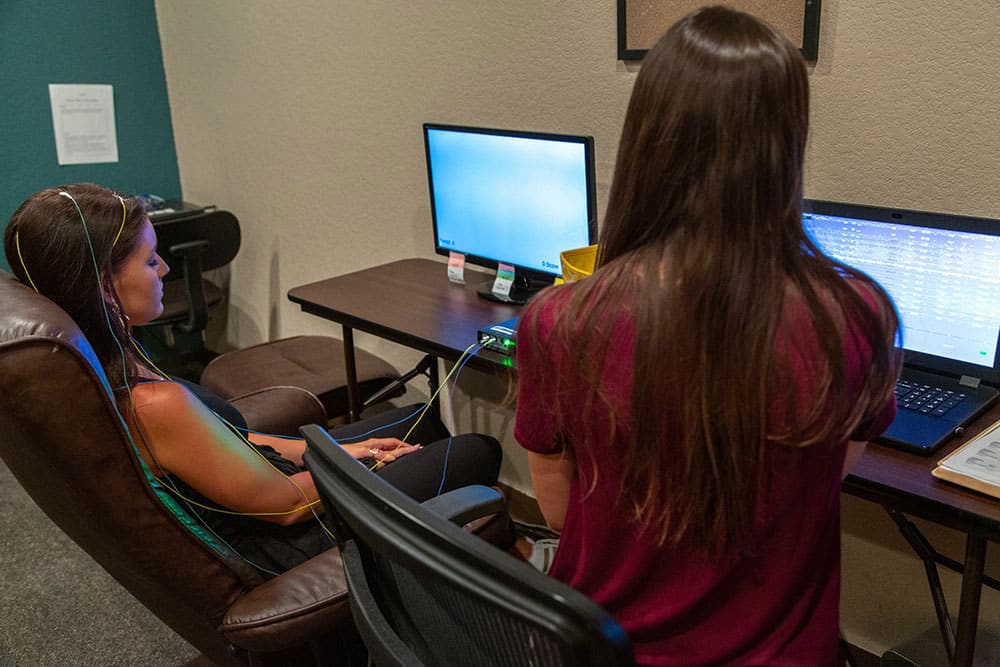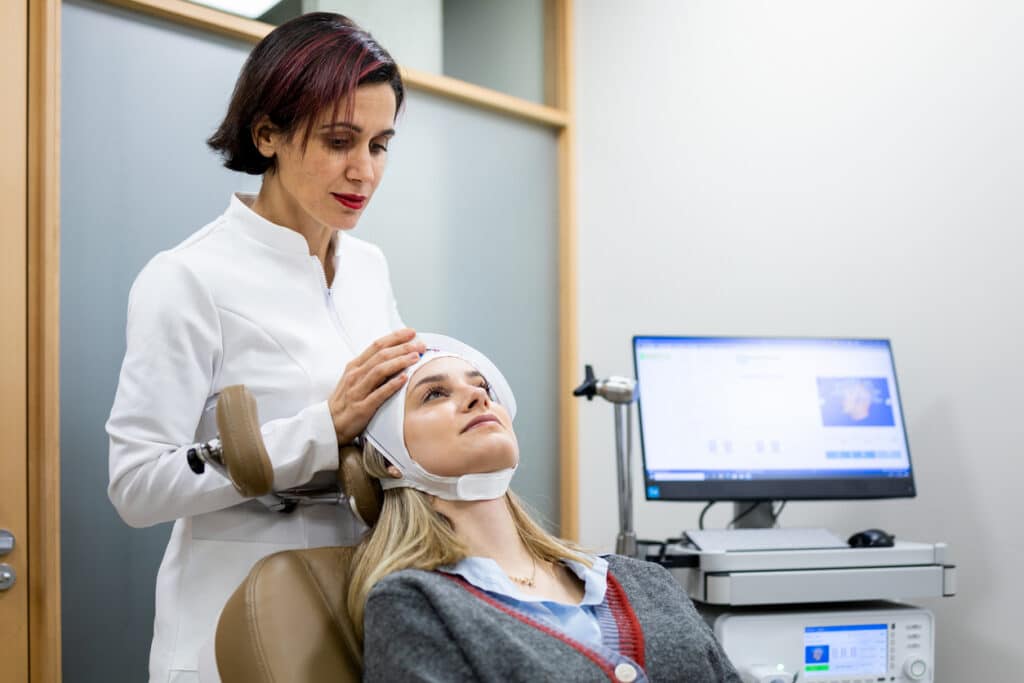By Anna McKenzie
Do you get stressed out easily? Sometimes this stress is due to chronic psychological conditions: Mental health disorders like depression and anxiety have become much more prevalent in America. According to the National Alliance on Mental Illness (NAMI), one in five adults in the United States struggled with serious mental illness in 2020.
According to the National Alliance on Mental Illness (NAMI), one in five adults in the United States struggled with serious mental illness in 2020.
It’s no secret that our brains and our mental health are deeply connected. Yet, as more and more people today face mental health challenges, there is a growing movement toward utilizing the science of our brains to overcome these issues and achieve mental wellness.
Mental Health Fitness Can Start Early
Mental health fitness skills are important for more than just adults. It’s not too early for school-age and even preschool-age children to start learning positive ways to cope with distress. Organizations like Goldie Hawn’s MindUP are teaching kids how to handle stress and regulate their emotions in healthy ways. Leading the charge in schools and at home, MindUP helps kids and their families harness their brain’s power to improve their well-being. Thanks to their efforts, more people are learning to monitor how they feel and develop mental health resilience.
Innovative Brain Science for Adults: Neurofeedback Therapy
For adults, a greater emphasis on brain science and mental health has resulted in innovations such as neurofeedback therapy, which allows you to see what your brain is doing in real time and understand how it responds in certain situations. Our mental health professionals here at The Meadows use neurofeedback (also known as neurotherapy) to help patients improve their moods, sleep habits, and attention, as well as treat anxiety, depression, and other mental health issues. According to the National Center for Biotechnology Information (NCBI), it’s even shown promise in alleviating overall post-traumatic stress disorder (PTSD) symptoms.
How Does Neurofeedback Therapy Work?
To properly understand how neurotherapy works, it’s important to have an idea of how our brains function in relation to our mental health. It all begins with our involuntary (or automatic) nervous system, which is responsible for things like breathing, heart rate, metabolism, and liver function. While the involuntary nervous system operates on its own, its function isn’t completely out of our control. If this nervous system remains unbalanced, however, symptoms like insomnia, anxiety, and stress can occur. So, what can be done to help?

Enter neurofeedback. Through placing small sensors on a patient’s head, mental health professionals can measure and analyze a patient’s brain activity as it’s happening. Using technology called brain mapping therapy, advanced computer software captures the brain’s electrical impulses and generates a visual brain map of these patterns. Therapists are able to then precisely identify the areas of the brain that aren’t working the way they should to determine treatment. Patients are able to see how their brains are responding (which can often be surprising) and learn to adjust their thoughts and feelings accordingly. It’s a fascinating way to see what’s working well in your mind and what’s out of balance.
Using the real-time displays of the brain’s activity, mental health professionals help their patients self-regulate their mental state. By repeating tasks that encourage healthy brain activity, patients can retrain their brains to improve function and increase overall health. This alteration of the brain is called neuroplasticity. New, healthy pathways are established inside the brain to support positive changes made during treatment. Over time, patients learn to recognize when their minds are going in a negative direction, and they can make adjustments to support these healthier brain pathways.
Over time, patients learn to recognize when their minds are going in a negative direction, and they can make adjustments to support these healthier brain pathways.
The Meadows’ Neurofeedback and Brain Mapping Therapy
Here, at The Meadows, we’re committed to helping our patients achieve greater mental health through cutting-edge neurotherapy practices. In fact, that’s the primary purpose of our Brain Center.
Our Brain Center at The Meadows is both a caring, safe space and a unique, innovative environment focused on wellness and healing. It’s all about helping you improve your self-regulation skills to establish a healthier approach to stress and other feelings.
With our state-of-the-art equipment, we use real-time displays to map brain activity, helping our patients confront their deeper issues of mental health by better regulating the brain’s limbic system (the part of the brain involved in our behavioral and emotional responses). Walking with our patients, we help them see firsthand what their brains are doing in the moment and how they respond to various circumstances. Being able to see the physical reason behind a mental health condition is an eye-opening experience.
With our committed neurotherapy approach, we’re able to help patients address brain dysregulation and the neuroscience of trauma, including symptoms such as anxiety, depression, addictive disorders, post-traumatic stress disorder (PTSD), and emotional disturbances. Patients retrain their brains, allowing for better integration and implementation of their minds. They’re empowered to draw upon what they learn in the Brain Center when they face anxious moments in the future, knowing the techniques they can use to self-regulate.
Help for Achieving Better Mental Health
If you’re struggling with anxiety, depression, and addiction, or find yourself in a constant state of stress, we’re here to help. Contact us today to learn more about our neurotherapy programs in the Brain Center so you can take confident steps toward enjoying a life of better mental health.



